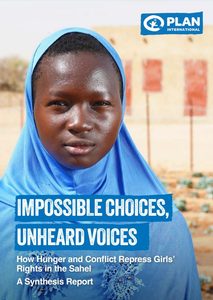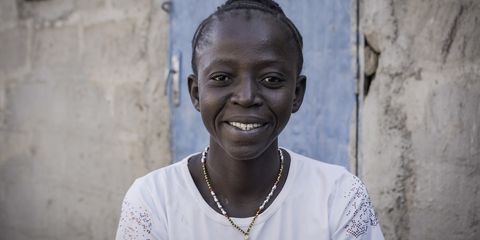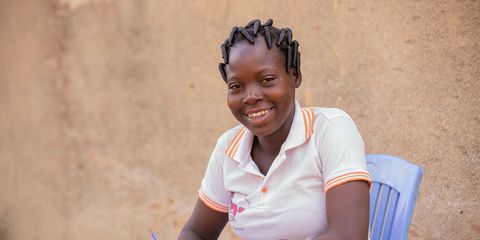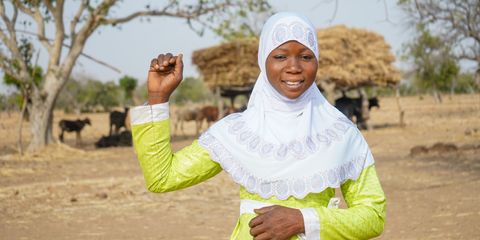Impossible Choices
How Hunger and Conflict Repress Girls’ Rights in the Sahel.
Across the central Sahel, the right of girls to develop, equally or at all, is under profound threat.
Under international law, all girls have an equal right with boys to develop to their full potential.
The realisation of this right hinges on the realisation in turn of a set of interdependent rights, including their rights to protection, health, education, and participation in decisions that affect them.
For girls to thrive and flourish, the rights have to be realised individually as well as holistically with one another.
Across the central Sahel, the right of girls to develop, equally or at all, is under profound threat.
A devastating array of factors combine with each other to impact on girls, as children in general and as adolescent females in particular, in ways that aggravate their vulnerability to, and risk of, the violation of any or all of their interdependent rights.
- Conflict drives food insecurity (through reduced crop production, economic disruption, and population displacement) and worsens climate impacts on the environment (for example, displacement puts strain on host communities’ scarce water resources).
- Climate shocks (drought, sporadic rainfall) impact on agricultural production and agriculture-based livelihoods, driving food insecurity as well as contributing to political instability.
- Food insecurity adds to the political instability that fuels conflict, while exacerbating climate impacts (for instance, through continued over-grazing by livestock).
- In the face of a host of crisis stressors, girls and their families are often forced to adopt coping strategies that may be extremely harmful (such as school dropout and being married off early).
- Negative coping strategies arise from, and are compounded by, pre-existing poverty, gender norms (for example, around girls’ education), and institutional or infrastructural fragilities (for instance, long distances to health centres to access contraception and avoid early pregnancy).

As a consequence of these factors, girls face major risks across four core rights domains:
- The right to protection: Crisis-affected girls are at risk of all forms of violence against children, ranging from witnessing atrocities to rape, homicide, sexual exploitation and more. Few spaces are safe for them in the daily walk of life, and formal protective institutions are weak or absent.
- The right to health: Gender inequality impacts on how food is shared within families, putting food-insecure girls at increased risk of malnutrition and, if they are pregnant, of dying while giving birth. The health risks of early pregnancy are pronounced because girls are at an increased risk of
- sexual violence and marriage, and thus at an increased risk of unprotected sex. Drought- and conflict-related water scarcity presents challenges for menstrual health and hygiene.
- The right to education: Long-standing educational disparities, gender norms and practices, economic hardships, acute food insecurity, and armed attacks targeting schools, teachers and pupils, have had catastrophic effects on girls’ education.
- The right to participation: Traditionally, girls in the region have had very little say in decisions about work, education and marriage. Despite some indications to the contrary, this pattern appears not only to remain unchanged but to have been reinforced under the impact of crisis.
- Restrictions on children’s movement – and hence on their participation opportunities outside the home – were widely reported, but overwhelmingly affected girls rather than boys.
These findings are discussed more closely in the full report.
Download the report:
English
813.88 kb
French
824 kb


